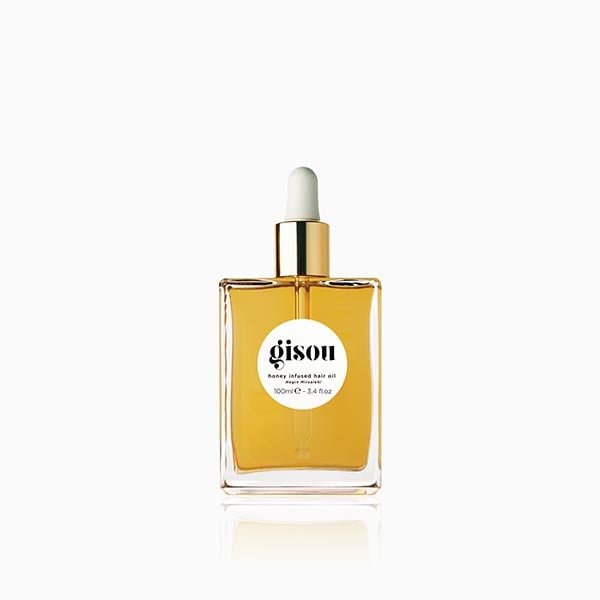Beepeeking with Negar Mirsalehi: August Bee Season Update
Beepeeking at Gisou is all about giving you, our community, a peek inside the world of bees & beekeeping. As our new Beekeeper-In-Chief, Negar Mirsalehi is excited to bring you along throughout the bee season!
“We’re still in the middle of Bee Season so I thought I’d bring you along to the Mirsalehi Bee Garden and give you an update about the bees! As Gisou’s Beekeeper-In-Chief, I hope to share some insights about the bees and beekeeping, so you can learn a thing or two and get inspired to support the bees. Maybe you’ll even start your own beekeeping journey one day!”
New to the world of bees and beekeeping? Take our online Bee Learning Course to learn all the basics!

Honey bees in August
August can be a challenging month for bees. Not only is it hot, but there are also less nectar sources available (as the flowers have passed their peak) compared to spring and early summer, which may lead to robbing.
Although August is considered to be the height of summer, it’s also the time to start thinking about getting the bees into shape for winter. This means making sure they have enough food sources but also checking for diseases and pests.
The start of the beekeeping year
Although we’re nearing the end of the bee season, August simultaneously marks the start of the new beekeeping year. This is because all the actions you take as a beekeeper now, will influence how well your colonies will do next season. If you take the right steps now, you will help your bees survive through winter and thrive in spring!
What is robbing + how to stop it
Robbing is a term used to describe honey bees who invade another hive to steal the stored honey. Robbing bees enter the hive, uncap capped cells of the honeycomb and fill their honey stomachs with honey from the other hive, and bring it back to their own hive. Bees fight each other in the process, and many bees unfortunately die.
If you notice a hive being robbed, you need to intervene immediately, because it’s hard to stop once it begins. Here are some steps beekeepers take to prevent or stop robbing:
- Make hive inspections quick
- Reduce the hive entrance to a very small opening, so guard bees have a better chance at guarding the hive and keep out robbing bees and wasps
- If your hive is weak, you can consider combining it with another hive to make it stronger.
Queen & colony evaluation
During this time of year, colonies start to prepare for winter, meaning they start rearing winter bees. These worker bees are different from summer worker bees. Winter bees live much longer than summer bees, 20 weeks as opposed to 6 weeks! Winter bees are also called fat bees because their bodies are larger. They have special organs in their abdomens which allows them to store more food to survive through winter.
It’s important for the bee colony to be healthy as it’s essential to survive winter. If a colony is weak, it’s possible to combine with a stronger or healthier colony to increase their chances of survival.

Requeening
August is also a good time to start thinking about requeening, if and when necessary. Requeening means a beekeeper replaces the current queen bee with a new one. It’s important to have a young, strong and productive queen in the colony who will survive winter and be strong enough once spring comes around to start laying eggs. Your hive is only as strong as the queen that leads it!
Drone eviction
August is also the time that drone bees (male bees) get kicked out of the hive by the worker bees. They serve no purpose after mating season, so they are expelled from the hive. The worker bees only tolerate a small number of drones in the hive during winter, in case of an emergency.
Varroa mite check & treatment
Beekeepers monitor their hives for varroa mites at least once a month during bee season, and more frequently during late summer. Varroa mites are a parasite that transmit bee viruses and also weaken and kill honey bee colonies. It’s therefore extremely important to monitor the bee colonies for mites and use the right treatment to remove the varroa mites while not harming the bees.

Provide water
August is usually a hot month, so beekeepers must provide enough water for their bees! Bees return harvested water to the hive and use it to cool down the hive by fanning their wings like a mini air conditioning system! The further they need to fly to find a water source, the more energy they’ll need to spend on it.
Tip: If there’s no natural water source nearby, you can create a bee bath using a shallow plate filled with water and flat stones, for the bees to land on safely. Refresh the water every few days!
Coming up in September
I hope you learned a thing or two about what the bees are up to in August, and how as beekeepers we can support them! September is all about honey harvesting and I can’t wait to take you along. Want to learn more about honey bees and beekeeping? Take our Bee Learning Course!
- Negar Mirsalehi, Gisou Beekeeper-In-Chief















